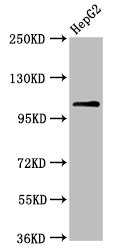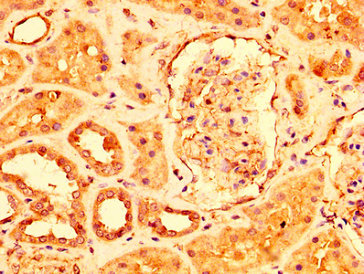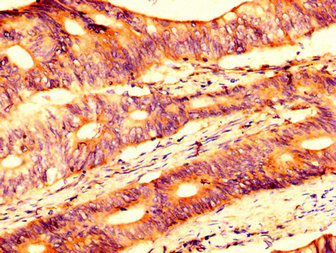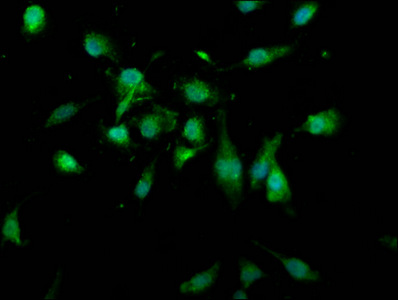Full Product Name
Rabbit anti-Homo sapiens (Human) USP4 Polyclonal antibody
Alternative Names
Deubiquitinating enzyme 4 antibody; MGC149848 antibody; MGC149849 antibody; Proto oncogene antibody; Protooncogene antibody; Ubiquitin carboxyl terminal hydrolase 4 antibody; Ubiquitin carboxyl-terminal hydrolase 4 antibody; Ubiquitin specific peptidase 4 (proto oncogene) antibody; Ubiquitin specific peptidase 4 (protooncogene) antibody; Ubiquitin specific peptidase 4 antibody; Ubiquitin specific processing protease 4 antibody; Ubiquitin specific protease 4 (proto oncogene) antibody; Ubiquitin specific protease 4 (protooncogene) antibody; Ubiquitin specific protease 4 antibody; Ubiquitin specific protease proto oncogene antibody; Ubiquitin specific protease protooncogene antibody; Ubiquitin thioesterase 4 antibody; Ubiquitin thiolesterase 4 antibody; Ubiquitin-specific-processing protease 4 antibody; Ubiquitous nuclear protein homolog antibody; UBP4_HUMAN antibody; UNP antibody; UNPH antibody; USP 4 antibody; USP4 antibody
Immunogen
Recombinant Human Ubiquitin carboxyl-terminal hydrolase 4 protein (632-810AA)
Immunogen Species
Homo sapiens (Human)
Conjugate
Non-conjugated
The USP4 Antibody (Product code: CSB-PA614393LA01HU) is Non-conjugated. For USP4 Antibody with conjugates, please check the following table.
Available Conjugates
| Conjugate |
Product Code |
Product Name |
Application |
| HRP |
CSB-PA614393LB01HU |
USP4 Antibody, HRP conjugated |
ELISA |
| FITC |
CSB-PA614393LC01HU |
USP4 Antibody, FITC conjugated |
|
| Biotin |
CSB-PA614393LD01HU |
USP4 Antibody, Biotin conjugated |
ELISA |
Purification Method
>95%, Protein G purified
Concentration
It differs from different batches. Please contact us to confirm it.
Buffer
Preservative: 0.03% Proclin 300
Constituents: 50% Glycerol, 0.01M PBS, pH 7.4
Tested Applications
ELISA, WB, IHC, IF
Recommended Dilution
| Application |
Recommended Dilution |
| WB |
1:500-1:5000 |
| IHC |
1:500-1:1000 |
| IF |
1:50-1:200 |
Storage
Upon receipt, store at -20°C or -80°C. Avoid repeated freeze.
Lead Time
Basically, we can dispatch the products out in 1-3 working days after receiving your orders. Delivery time maybe differs from different purchasing way or location, please kindly consult your local distributors for specific delivery time.
Usage
For Research Use Only. Not for use in diagnostic or therapeutic procedures.










